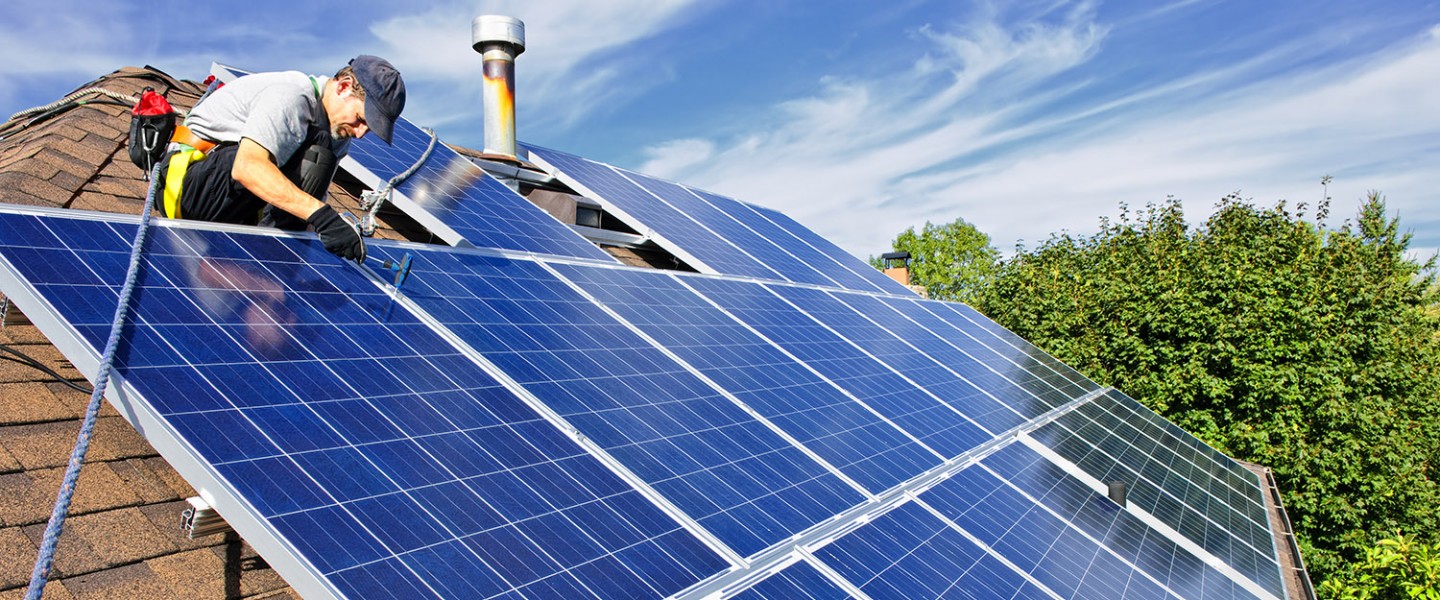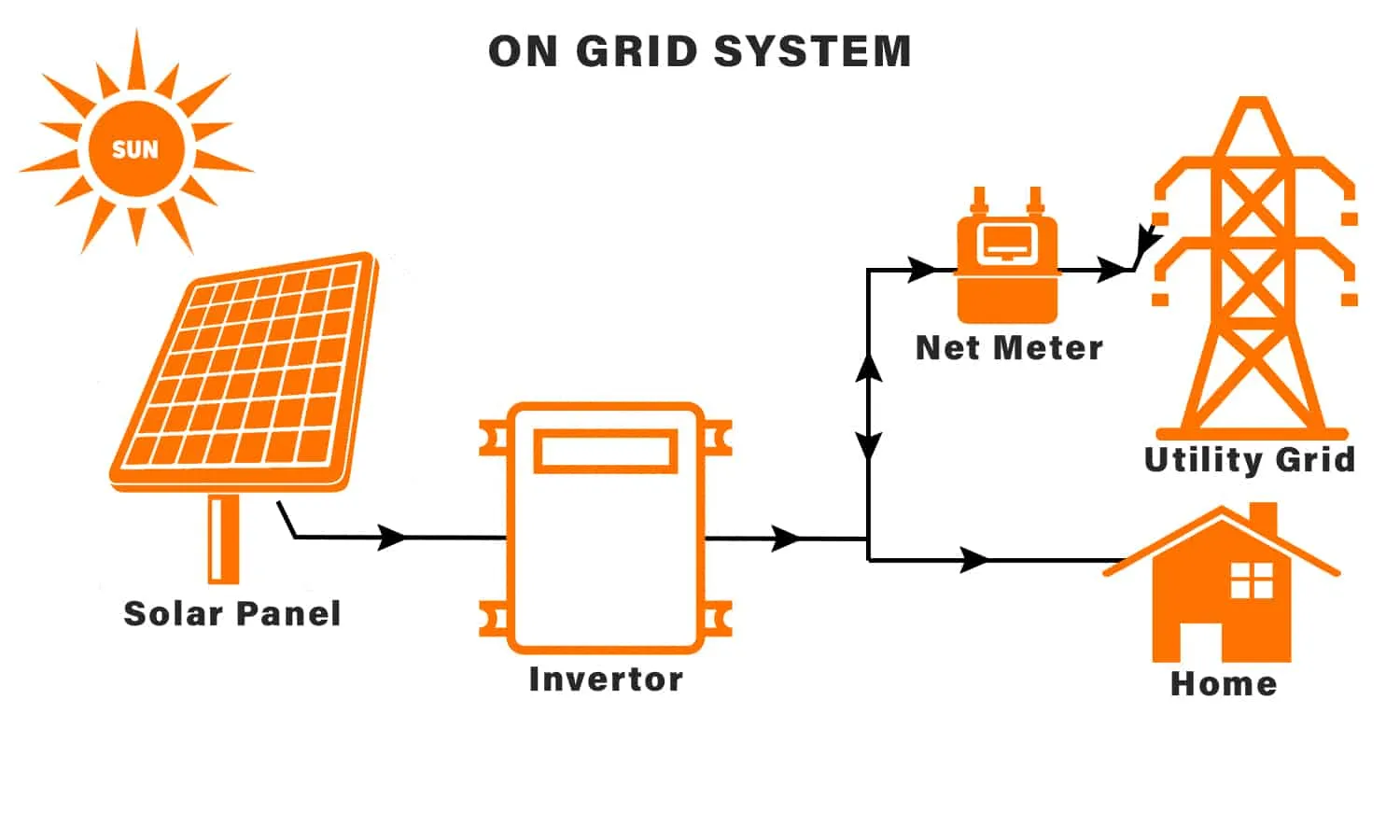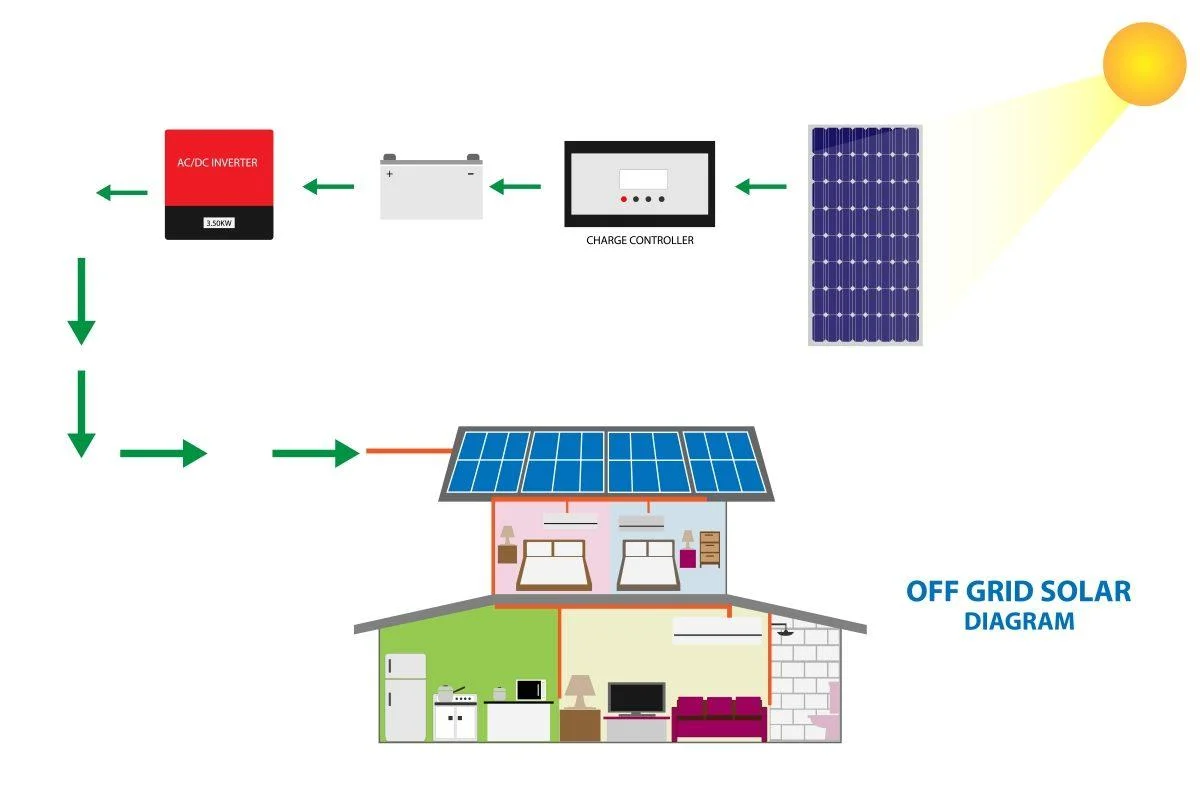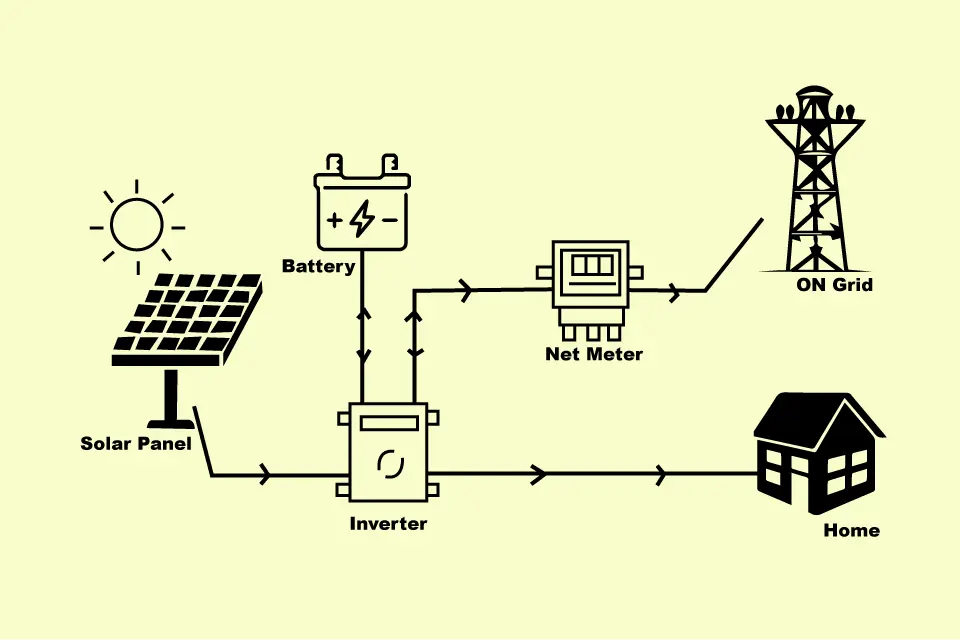Solar energy system is a system built using sustainable energy (i.e. solar energy), is a new type of power generation system that uses the photovoltaic effect of solar cell semiconductor materials to directly convert solar radiation into electrical energy. In this article, you will learn about how many types of solar system and the basic information of these types of solar systems and have a basic understanding of them, which will help you make the choice that is more suitable for you.

How Many Types of Solar System
If you are considering the many benefits of solar energy, it is important to understand the types of solar energy systems currently available. Solar power generation systems are divided into three basic types: grid-connected systems, off-grid systems and backup power systems. Let’s take a closer look at the different types of solar systems and compare them.
Solar System Components
Solar Panels
By absorbing sunlight, solar radiation can be directly or indirectly converted into electrical energy by photoelectric effect or photochemical effect.
Solar Inverter
It is a device that converts direct current generated by solar panels into alternating current.
Solar Batteries
It is a photoelectric semiconductor device that uses the sun to generate electricity, also known as solar chip or photocell.
3 Types of Solar Systems
On Grid System
Define: Grid-connected is a system that connects solar power generation systems to the public grid. Solar panels send the generated energy to the public grid by converting solar energy into electricity.
Working principle: After the direct current generated by the solar cell module is converted into alternating current that meets the requirements of the grid by the grid-connected inverter, it directly enters the public grid. The power generated by the photovoltaic cell array in addition to supplying the AC load, the excess power is fed back to the grid.
Advantage and Disadvantage: Self-use, do not need to use batteries, low cost is not affected by power, stable power supply; When the grid is out of power, it doesn’t work and there are reliability problems. It will be affected by weather factors, in cloudy days, rain and snow and haze days, etc., affect power generation, and can generate electricity when there is sun.
Applications: It is mainly used in residential, commercial, industrial, agricultural, community and some urban projects, as well as power plants and energy suppliers. It covers a wide range of application fields and greatly meets the needs of different groups of people.

Off Grid System
Define: The off-grid solar energy system is a system independent of the public grid, which directly supplies power to DC power equipment without inverting. It is not connected to the grid and is powered by solar panels and energy storage devices.
Working principle: The use of solar panels in the case of sunlight to convert solar energy into electricity, the use of solar power generation, through the inverter to convert into alternating current, and the energy stored in the storage equipment, the use of batteries to provide electricity.
Advantage and Disadvantage:A wide range of optional addresses, suitable for underdeveloped areas or remote areas with frequent power outages, can ensure energy storage, electricity can be available at night, and power can still be supplied if the grid is cut off; The cost is high and the battery needs to be replaced, which may need to be changed in 5-8 years.
Applications: Off-grid can operate independently, so it can be applied to remote areas and islands that cannot be connected to the grid, and some places that require independent energy supply. It can also be used as an emergency backup power supply for power outages and emergencies.

Hybrid System
Define: Hybrid solar systems combine the characteristics of both grid-connected and off-grid systems. The system can be connected to the public grid, it is equipped with energy storage equipment, can operate independently, or can draw power from the grid when needed.
Working principle: The solar light is converted into direct current through the solar panel, and then converted into alternating current through the inverter, so as to supply the use of electrical equipment.
Advantage and Disadvantage: The advantages of off-grid connection are integrated. The price is high, the initial project is large, and the maintenance cost is high.
Application: Hybrid systems combine the application fields of grid-connected and off-grid solar systems and have unique advantages. It can play a role in a variety of scenarios, provide clean, environmentally friendly, renewable energy, and meet people’s diverse scenarios and needs.

What Are The Different Types of Solar Systems
According to the solar system can be divided into grid-connected solar system, off-grid solar system and hybrid solar system. These three types of solar energy systems, which use solar energy to generate electricity, are easy to utilize and develop. These three types of solar energy systems can be applied to different scenarios and needs, providing people with clean, harmless, green energy. It reduces carbon emissions, reduces environmental pollution, and has a good protection effect on the environment. The use of solar energy can also save costs, which is in line with today’s sustainable development.
Conclusion
China leads the world in solar power technology and is now the world’s largest solar power producer. The use of solar energy can help people achieve energy access, improve energy security, and promote social and economic development.
As the global demand for renewable energy continues to increase, solar energy as a green, clean and unlimited renewable energy resource is becoming an important driving force in the global energy sector.
This article describes three types of solar energy systems, different solar energy systems corresponding to the application field is very different. So the choice of solar system type is important, which needs to consider the specific situation and the location of the home or business. If you don’t know how to choose between the three different types of Solar systems, you can contact us at GYCX Solar and we can provide you with effective advice and clear choices.
